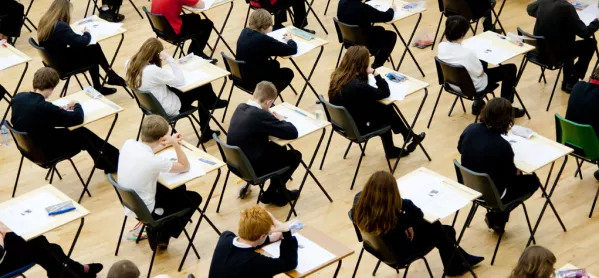Exams regulator Ofqual will introduce a new pupil-performance test from 2017, which could bring to an end an effective national freeze on significant rises in exam grades.
The “national reference test” will be taken by 18,000 Year 11 pupils from 2017, and will be used to gauge whether there have been genuine improvements in pupil performance that would justify an increase in the GCSE pass rate nationally.
A report published this morning said trials of the new test, which were carried out this spring, had gone according to plan, so it can be introduced nationally from next year.
About 300 schools in England will be legally obliged to take part in the new tests in English and maths. At each of those schools, about 30 pupils will take an English paper and about 30 will take a maths paper. Both tests will last about an hour.
Pupils and schools will not receive their test results, but Ofqual will use anonymised data on the results to decide whether pupils’ performance is improving.
‘A clear potential to benefit GCSE awarding’
Sally Collier, Ofqual’s chief regulator, said: “The trial went very smoothly and has demonstrated that the test is ready to go live. We will make sure that schools taking part are well supported, and more generally explain how the results have a clear potential to benefit GCSE awarding.”
Under the current grading system, known as “comparable outcomes”, exam boards effectively hold grades constant at a national level from year to year by using data on pupils’ prior attainment to set grade boundaries. This approach has brought an end to more than two decades of rising GCSE grades.
The national reference test could allow grades to rise again by providing an independent measure of the quality of teaching and learning across England.
The decision to go ahead with the test comes after expert advisers identified serious technical problems with the plan.
They told TES last month that they had two major concerns about the test. Firstly, that its margins of error could be so significant that a result that looked like a genuine improvement in pupils’ attainment could be indistinguishable from a statistical error.
Secondly, they warned that if the paper was too similar to GCSE exams, an improvement in performance on the NRT could be caused by the same factors that cause grade inflation in GCSEs, such as increasing familiarity with the content.
Want to keep up with the latest education news and opinion? Follow TES on Twitter and like TES on Facebook




